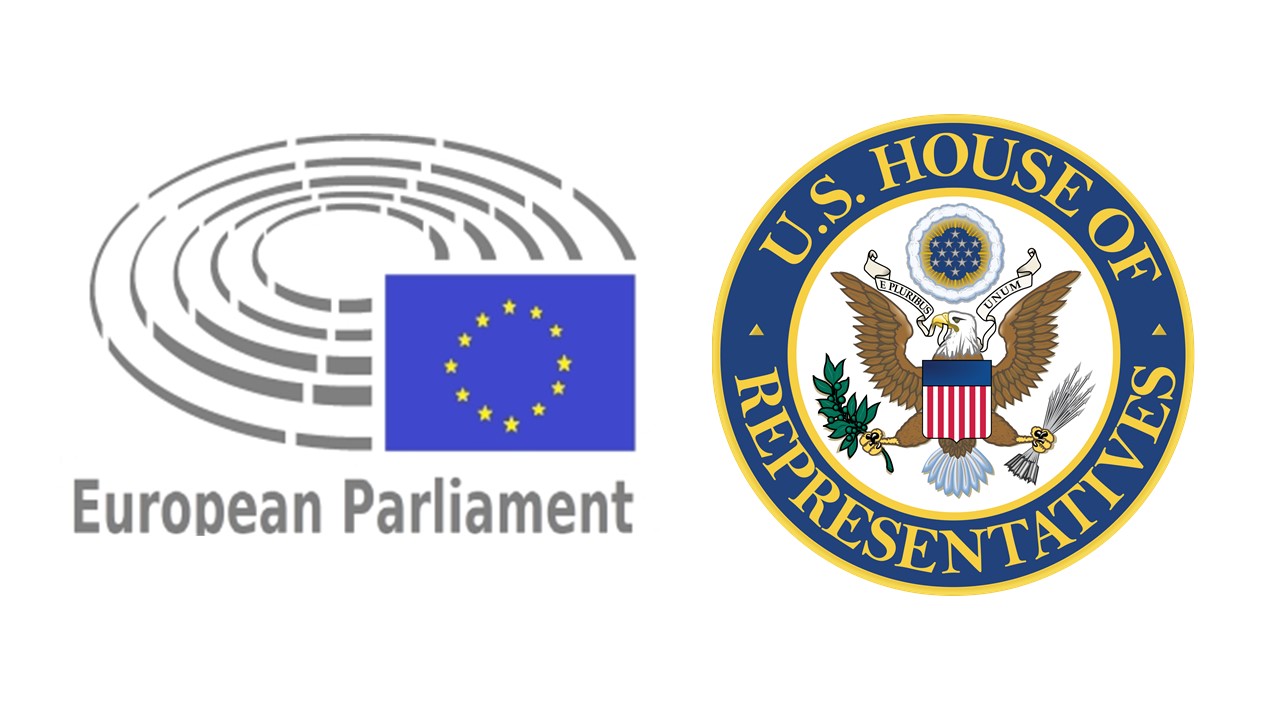21 February 2019 – Last week, the United States (US) House of Representatives and the European Parliament took steps to address the ongoing imprisonment of women in Saudi Arabia and the systematic discrimination against them. On 13 February, US Representatives Lois Frankel (D-FL), David Cicilline (D-RI), Ann Wagner (R-MO), and Susan Wild (D-PA) introduced a bipartisan House resolution (H.Res. 129) calling for the immediate and unconditional release of women’s rights defenders imprisoned in Saudi Arabia for their activism around the driving ban. On 14 February, the European Parliament issued a resolution (2019/2564(RSP)) proposed by Fabio Massimo Castaldo, Ignazio Corrao, and Rosa D’Amato on behalf of the Europe of Freedom and Direct Democracy (EFDD) Group, similarly condemning the imprisonment of women’s rights activists in Saudi Arabia and deploring the continued systematic discrimination of women via the male guardianship system. Americans for Democracy & Human Rights in Bahrain (ADHRB) welcomes the steps taken by both bodies to address ongoing systematic discrimination against women in Saudi Arabia and the continued imprisonment of female activists who long-advocated for the lift of the driving ban.
The resolution proposed by Representative Frankel and co-sponsors marks a shift in focus in the House of Representatives beyond the murder of Jamal Khashoggi and the Saudi-led coalition in Yemen to a rebuke on wider systematic abuse by the Saudi government. It addresses key issues surrounding the imprisonment of women’s activists – including the alleged torture of Loujain al-Hathloul and the imprisonment and ill-treatment of women’s rights defenders – further contextualizing them within the framework of systematic discrimination against women through the male guardianship system. The proposed resolution calls for the US government to invoke the Global Magnitsky Act, sanctioning responsible human rights violators, and to publicly and privately raise human rights with the Saudi government, including the abuse of female activists. The European Parliament has echoed similar concerns regarding the targeting and treatment of women and women’s rights activists in Saudi Arabia.
Last week’s resolution from the European Parliament raised concerns over male guardianship and the wider discrimination against women in the kingdom. The resolution saw wide support, with over two-thirds of the assembly’s approval, and came shortly after another major decision from the European Commission to add Saudi Arabia to a dirty-money blacklist. The European Parliament similarly condemned the detention, torture and harassment of leading women’s rights defenders like Loujain al-Hathloul, Aziza al-Yousef, Eman al-Nafjan, Samar Badawi, Israa Al-Ghomgham, and countless others. However, unlike the resolution introduced by US lawmakers, the broader European legislature introduced evidence of the kingdom’s failure to uphold its plan for economic and social reform and the problems with the Crown Prince’s image as a reformer. While the bloc called for increased European engagement with the Saudi government and for Saudi authorities to release activists and reform discriminatory legislation, it markedly highlighted the juxtaposition of the kingdom’s continued targeting of women’s activists with Crown Prince Mohammed bin Salman’s (MbS) Vision 2030, noting that the plan for social reform entails an element of women’s empowerment and should have presented opportunity for legal emancipation. European lawmakers highlighted that “the recent wave of arrests and alleged torture of women’s rights activists runs counter to this aim, and may distract from the reform agenda.”
The wave of arrests in May 2018, preceding the lift of the driving ban, largely targeted a number of prominent activists who had for years advocated for women’s right to drive. While the lift of the ban was hailed as major progress in Saudi Arabia and a landmark moment for Vision 2030, serious concern surfaced surrounding the targeting of Saudi activists who had championed the movement for years, and called into question MbS’s sincerity as a reformer in the kingdom. The Crown Prince’s record has been further marred by other abuses, including the arrests of dozens of dissidents, academics, clerics, and activists in September 2017, an increase in executions after his elevation, ongoing crimes in Yemen, and more recent questions surrounding his involvement in the murder of journalist Jamal Khashoggi. After the king decreed in September 2017 that the driving ban would be lifted in June 2018, authorities went so far as to call activists and pressure them not to comment on the decision. Though he has marketed himself as a reformer with Vision 2030, MbS has shown insignificant inconsistency with these claims and instead repeatedly demonstrated a flagrant disregard for human rights and the implementation of measurable social reform. The European Parliament’s resolution 2019/2564(RSP) signals that international governments are beginning to see through the Crown Prince’s hollow campaign for sweeping reform in the kingdom, specifically in the context of women’s rights.
“Saudi Arabia has consistently targeted human rights defenders in retaliation for their work, and the situation has only deteriorated under the Crown Prince, despite his claims to be a reformer,” says ADHRB Executive Director Husain Abdulla. “The arrests of prominent women’s rights activists ahead of the lift on the driving ban is in direct opposition to claims of reform around women’s rights, serving to further demonstrate that the Saudi government has little intention of implementing meaningful reform. The US Congress and European Parliament have taken crucial steps to begin addressing human rights abuses whitewashed by the hollow campaign for social reform, including publicly flagging practices inconsistent with Vision 2030. The international community must call for the immediate release of these activists and an end to systematic discrimination against women, as well as call for Saudi Arabia to implement holistic social reform.”
ADHRB welcomes the resolutions introduced in the US House of Representatives and the European Parliament calling for the release of women’s rights activists and an end to the systematic discrimination against women in Saudi Arabia. We further applaud the European Parliament’s direct attention to inconsistencies between the arrest of Saudi women’s activists and the Crown Prince’s agenda for reform. ADHRB echoes the calls and concerns raised in both resolutions and urges the international community to hold Saudi Arabia accountable for systematic human rights abuses, including those against women.





